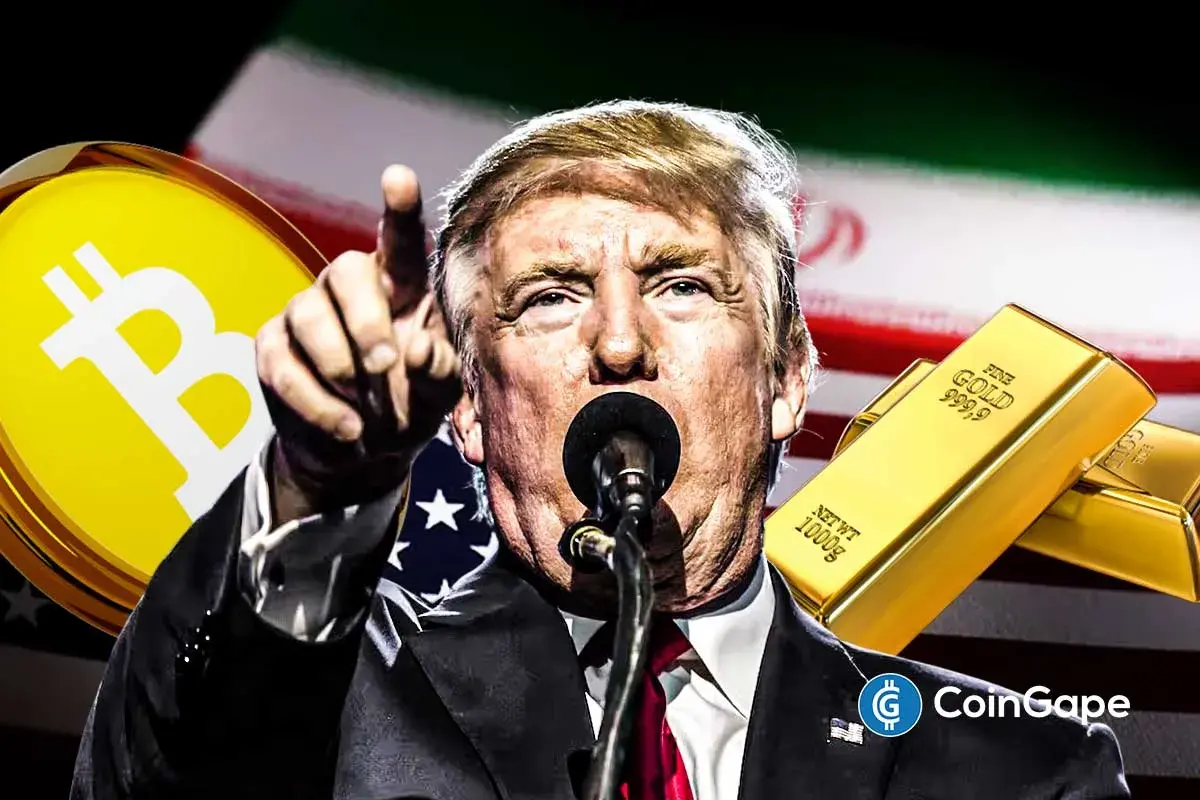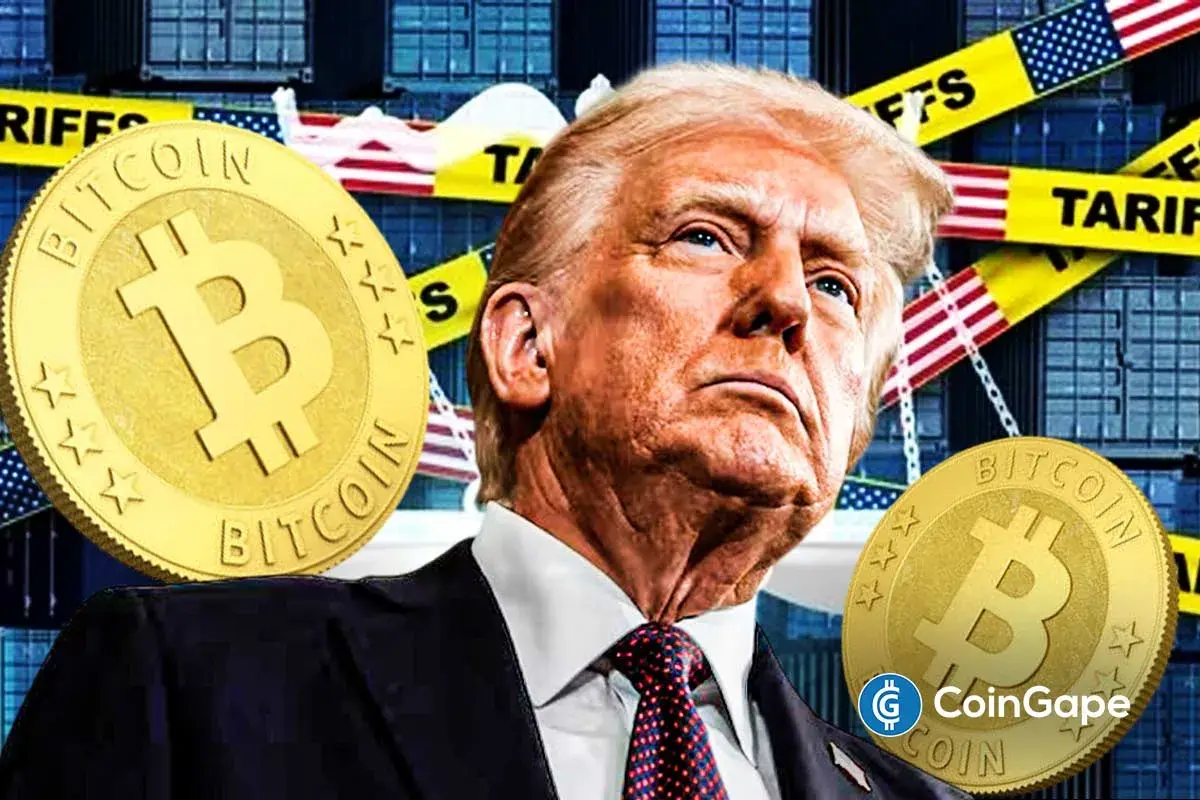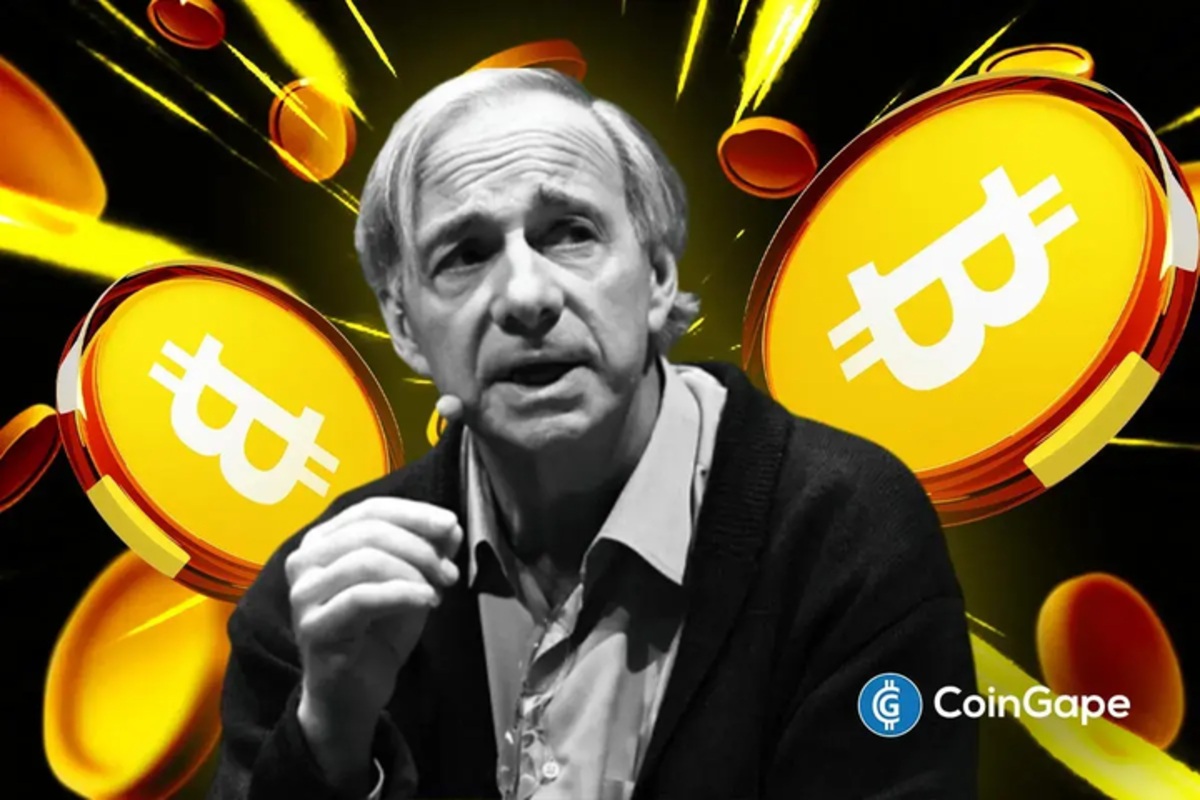Peter Schiff Blasts RFK Jr’s Bitcoin Buy Plan As ‘Vote-Buying’ Strategy

Highlights
- Robert F. Kennedy Jr announced inception of a Bitcoin reserve if he is elected as the U.S. President.
- He claimed that the U.S. government would buy 550 BTC everyday under his leadership.
- However, this statement was met with significant skepticism from Bitcoin critic Peter Schiff.
In a bold declaration at the Bitcoin Conference 2024 in Nashville, Robert F. Kennedy Jr. outlined his ambitious plan to transform the U.S. approach to BTC if elected President. Kennedy announced he would sign multiple executive orders on his first day in office aimed at integrating BTC into the U.S. economic strategy. However, the statement has attracted criticism from Peter Schiff, a renowned Bitcoin skeptic.
Robert F. Kennedy Jr On BTC Reserve
Kennedy’s plan includes directing the Department of Justice and U.S. Marshals to transfer approximately 200,000 BTC reserve held by the government to the U.S. Treasury. The Treasury would then hold this Bitcoin as a strategic asset. Additionally, Kennedy proposed that the Treasury purchase 550 BTC daily until the U.S. accumulates a reserve of at least “4 million” BTC.
He believes this move would establish the U.S. as a dominant force in the global BTC market, analogous to its significant share of global gold reserves. Kennedy also aims to reform the tax treatment of Bitcoin. He plans to sign an executive order instructing the IRS to make all transactions between Bitcoin and the U.S. dollar non-taxable and issue public guidelines on this matter.
Furthermore, he proposes allowing BTC to be used in 1031 exchanges for real property, enhancing its usability. It’s also important to note that Kennedy announced the BTC reserve plan before Trump’s rumored announcement on Saturday, July 27. Hence, a crypto voter shift could be noted.
However, Kennedy’s odds of winning the presidency appear slim. According to Polymarket, Kennedy has only a 1% chance of winning the election, while former President Donald Trump holds a dominant 54% chance. Meanwhile, Kamala Harris boasts 39% win odds, according to Polymarket.
Also Read: Pro-Bitcoin RFK Eyes Election Victory, Denies Endorsement For Donald Trump
Peter Schiff Slams RFK Jr
Peter Schiff, a well-known critic of Bitcoin and a prominent economist, has harshly criticized Kennedy’s proposal. In a post on X, Schiff labeled Kennedy’s plan as a ‘vote-buying’ strategy. Schiff suggesting that the candidate is attempting to attract BTC enthusiasts by promising to use taxpayer funds to buy Bitcoin and eliminate income taxes on Bitcoin gains. Schiff questioned the strategic value of BTC.
He stated, “There’s nothing strategic about #Bitcoin. No nation should own any as a reserve asset.” Moreover, Schiff’s critique extends to Kennedy’s broader policy implications. He argues that BTC does not offer the same benefits as a return to a gold standard, a policy Schiff supports.
He expressed disappointment that Kennedy’s otherwise positive message was overshadowed by his BTC stance. Schiff contends that BTC does not address fundamental issues. The economist noted that it implies that Kennedy’s promises are more about garnering votes than implementing effective policy.
Peter Schiff, hence, advocated for a traditional gold standard. Also, if it really is a vote-buying tactic, the plan may never be executed even if RFK Jr enters the White House. Earlier, Schiff also called out Donald Trump for endorsing BTC. Adding to the discourse, Michael Saylor of MicroStrategy also proposed a similar plan but faced criticism from Schiff.
Saylor suggested that, just as the U.S. government holds a significant portion of the world’s gold and land, it should also amass a considerable BTC reserve. Saylor’s proposal echoed Kennedy’s vision of the U.S. government being a major Bitcoin holder. However, Peter Schiff responded to Saylor’s proposal with skepticism, labeling it as a bid for a government bailout of BTC.
He accused Saylor of seeking government intervention to prop up BTC. The economist implied that such a move would leave taxpayers exposed to the risks of a failing crypto market. Moreover, Schiff wrote on X, “Ironically, Michael Saylor is looking for a government #Bitcoin bailout.” He also labeled BTC as a “pyramid scheme” orchestrated by early investors like Saylor.
Also Read: Peter Schiff Slams MicroStrategy’s Michael Saylor Over “Bitcoin Pyramid Scheme”
Play 10,000+ Casino Games at BC Game with Ease
- Instant Deposits And Withdrawals
- Crypto Casino And Sports Betting
- Exclusive Bonuses And Rewards

- Why Experts Are Warning Bitcoin Rally Could Be A “Dead Cat Bounce”
- BTC and Gold Price Bounce as Trump Admin Brokers US-Venezuela 1000 Kg Gold Deal
- SEC Advances Major Crypto Securities Plan to White House for Approval
- Peter Brandt Flips Bullish, Predicts Bitcoin Rally As Price Holds Above $70k
- XRP News: Institutional Use Case Expands as Doppler Finance Integrates WXRP for Multi-Chain Access
- Dogecoin Price Outlook as BTC Recovers Above $73,000
- XRP Price Prediction as Iran-U.S. Peace Talks Trigger a Crypto Rally
- COIN Stock Analysis as Bitcoin Retests $72k Ahead of February NFP Data
- Robinhood Stock Price Prediction As Cathie Wood Buys $12M Dip in Bold ARK Move
- Bitcoin Price At Risk? Professor Who Predicted US-Iran War Says America Could Lose
- Gold Price Prediction March 2026: Rally, Crash, or Record Highs?

 Buy $GGs
Buy $GGs

















